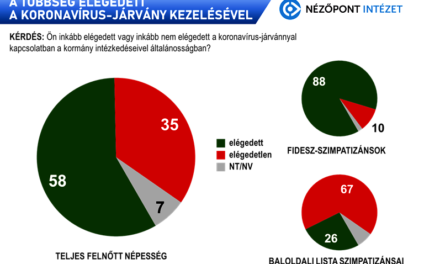The use of aggressive words in public discourse and in the media has become commonplace. Perhaps the most common is the brutal and its adverbial version, brutally rampant.
" The price of fuel is dropping brutally Brutally good prices on the tour," we read in the press. "He went over the limit with the clip, there was someone who brutally blew the fuse", shouts another, confusing text, cramming two worn-out fashion expressions and a grammatical error into one sentence: in brutal , he also throws at us the structure "he blew the fuse", which also patch language expression to be replaced with a meaningful one.
If we include the mentioned adjective or its adverbial version in a sentence in their original meaning ('cruelly, ruthlessly rough, merciless'; 'cruelly, mercilessly rudely, mercilessly'), regardless of their repulsive content, we say exactly: "a brutal fight was recorded by the surveillance camera " ; " brutally tore out the metal railing on Baross Square". However, in their application cited above - due to inaccuracy and too frequent repetition - these are buzzwords with grayed-out, empty meaning, and they often leave the true meaning of what is being said obscured or misunderstood. Obviously, "extremely favorable, subsidized, affordable " is covered by the " brutally good " price, but this structure is therefore imprecise and nebulous, and the two words of the syntagma are, moreover, half-assed. " brutally decreases", it is better to significantly , but it is even better if we specify the exact amount: by how many forints will it decrease. The sentence fragment " brutally blew the fuse " is also a vague indication, probably indicating that some people did not like the clip at all, or at all, maybe others even more confused, even agitated, irritated, irritated, provoked, etc.
And we can continue the line: " brutally cold at night"; " brutally hot in Budapest today"; last summer was " brutally "Tick invasion: a brutal summer is coming"; " brutally mild January"; the singer " cut her hair brutally " a brutally long way". Furthermore: "the team took care of the leader of the list with a " brutal hair""; " brutally prepared" for the song festival; " brutal cleavage"; the competitor has brutally ; " brutally beautiful girl"; the Brazilian striker scored a " brutally " brutally delicious ice cream"; " brutal cute pictures". And in the age of abbreviations, "of course" there is already a shortened version: " Brutal big lightning was photographed in Geneva", " brutal big mushrooms" were found; " brutal pretty".
The "most beautiful" is: "One of my favorite films is Target, in which you played a brutally humane detective." The only thing that would be more confusing than that is the brutally tame . Would be? We also come across this in the media: "the perfume bomb brutally gentle disciplinary tool". This is foggy, monotonous language; it can also have an unfavorable consequence: in this kind of speech, nothing means anything anymore...
We can replace the quoted words with meaningful words and phrases that fit the text. Here it is: freezing, wolf-howling weather, zimanko, harsh weather; heat, sweltering heat, extreme heat, banana-ripening heat; dangerous due to the tick invasion , that prompts caution is coming; spring-like mild January; extremely hot summer; unusually, surprisingly, astonishingly short; infinitely, infinitely long way. Also: bravura, powerful, overwhelming hair; thoroughly, accurately, comprehensively prepared; showy, eye-catching, attractive, decorative, charming, delightful , attractive, seductive, sensual cleavage; delightful, captivating, magical vocals; dreamy, beautiful, breathtakingly beautiful girl; a bravura, masterful, virtuoso hit; mouth-wateringly delicious, delicate (hot) chocolate; cute, phenomenal, charming pictures; extensive , fierce (powerful), ferocious lightning; large, large, giant, unusually large mushrooms; amazingly, breathtakingly beautiful. Also: extremely humane; too gentle, lamb-like, dove-hearted .
A rich set of synonyms is therefore available to the speaker and communicator. Why do many people insist on a single trite, lead gray buzzword instead of these meaningful expressions - which often does not even fit into the text because it is exaggerated and even misleading?
Author: Lajos Arany












